The BU Research Conference returns on Wednesday 14 June, where we’ll be exploring the F word – failure: what we can learn from it, and how we can overcome it.
As well as inspiring speakers – including BU Honorary Doctorate recipient Dr Jan Peters MBE, Robert Seaborne from Inside Academia, and Professors Ann Hemingway and Sam Goodman – we also have a range of practical workshops planned to help with developing strategies and techniques to deal with setbacks and overcome obstacles.
Each workshop will last one hour and attendees will have the opportunity to attend two of the below workshops on the day:
Bounce back to your future
Some knockbacks hurt more than others, leaving our confidence dented and our energy drained. This interactive session provides space to explore who you are and create a personal vocabulary to return to in moments of doubt. You will leave with a personalised paragraph to confidently introduce yourself to collaborators and co-workers.
This workshop will be delivered by Helen Shipton of Katalytik, a confidence coach who is passionate about helping people be their best through their authentic voice.
Building Resilience
This workshop will help you explore and identify strategies to build your personal resilience capabilities. You’ll explore what is meant by resilience and why it’s so important and discuss strategies and approaches to build resilience and develop a positive mindset.
This workshop will be delivered by Rachel Curry from Organisational Development.
Improving writing practices
Professor Matthew Bennett has published more than a dozen books and 170 papers over almost 30 years in academia. In this workshop, he will share some of his personal journey with academic writing and the hard-learnt lessons along the way – covering the trials of striving for elite journals, dealing with rejection, and practical tips for better writing.
This workshop will be delivered by Professor Matthew Bennett, Professor of Environmental and Geological Sciences.
Repurposing your unsuccessful grant applications
This workshop will cover best practice for repurposing unsuccessful applications for external funding. You’ll discuss what makes a successful application, the value of feedback from funders and peers, and how to develop a revised bid.
This workshop will be delivered by Eva Papadopoulou, Research Facilitator in RDS.
The BU Research Conference takes place on Wednesday 14 June in the Fusion Building. To find out more and book your place, visit: https://researchconference23.eventbrite.co.uk
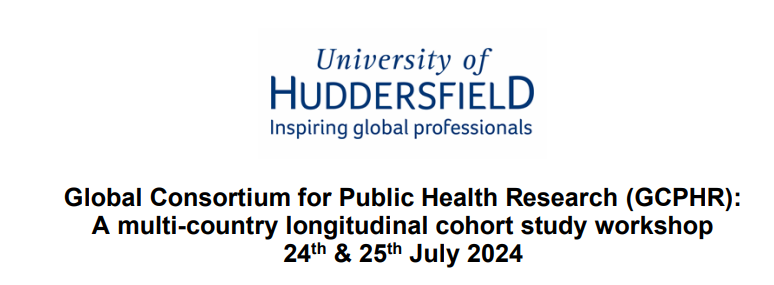 Today and yesterday (24-25 July) the Global Consortium for Public Health Research (GCPHR) met at the University of Huddersfield in a workshop to plan the multi-country (India, Nepal & Ghana) longitudinal cohort study. The workshop was attended by 15 people including Dr. Pramod Regmi and Prof. Edwin van Teijlingen from Bournemouth University’s Faculty of Health & Social Sciences.
Today and yesterday (24-25 July) the Global Consortium for Public Health Research (GCPHR) met at the University of Huddersfield in a workshop to plan the multi-country (India, Nepal & Ghana) longitudinal cohort study. The workshop was attended by 15 people including Dr. Pramod Regmi and Prof. Edwin van Teijlingen from Bournemouth University’s Faculty of Health & Social Sciences.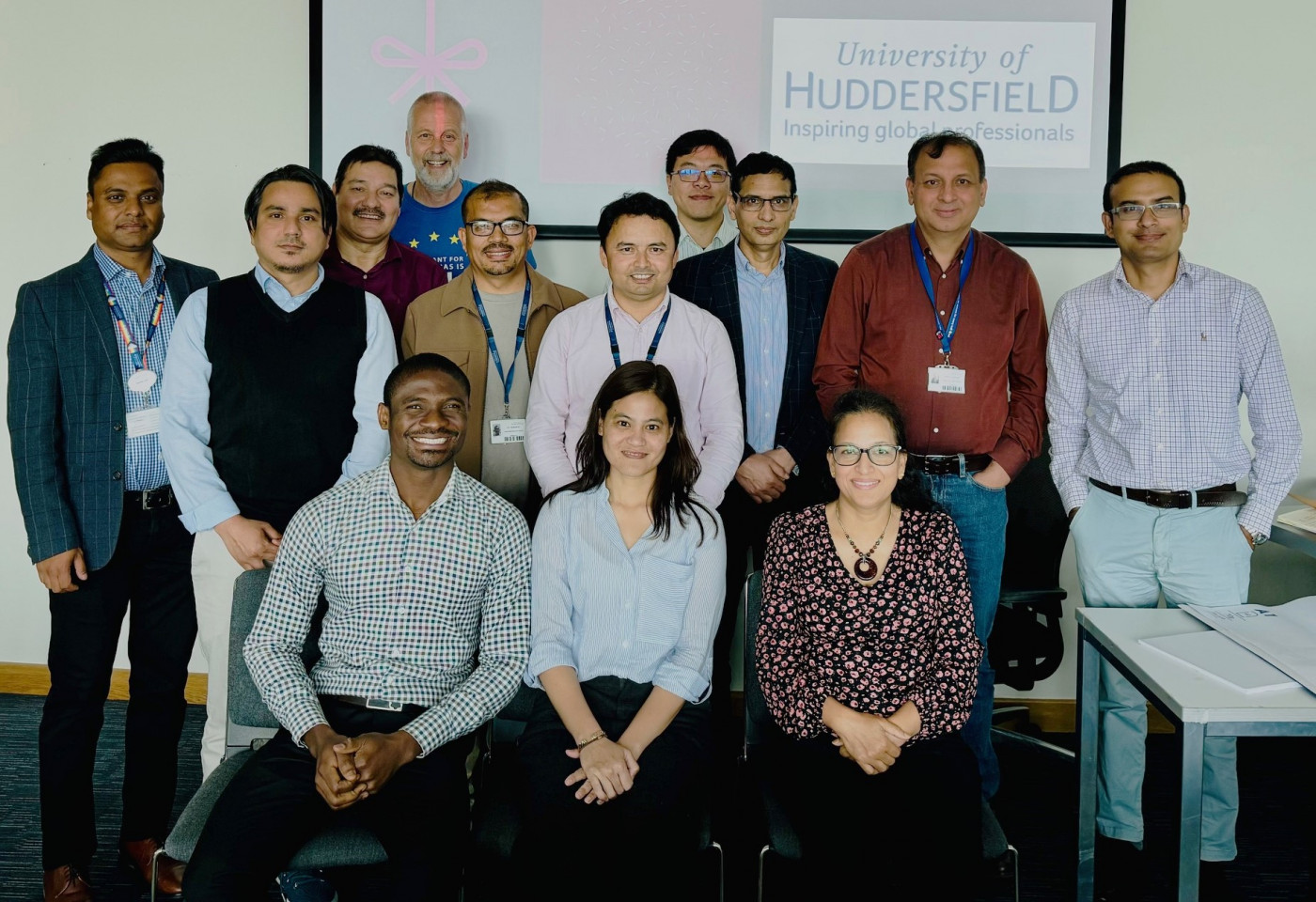
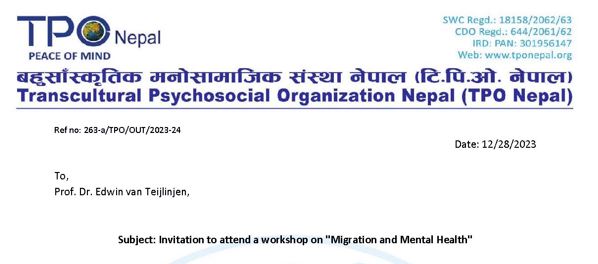
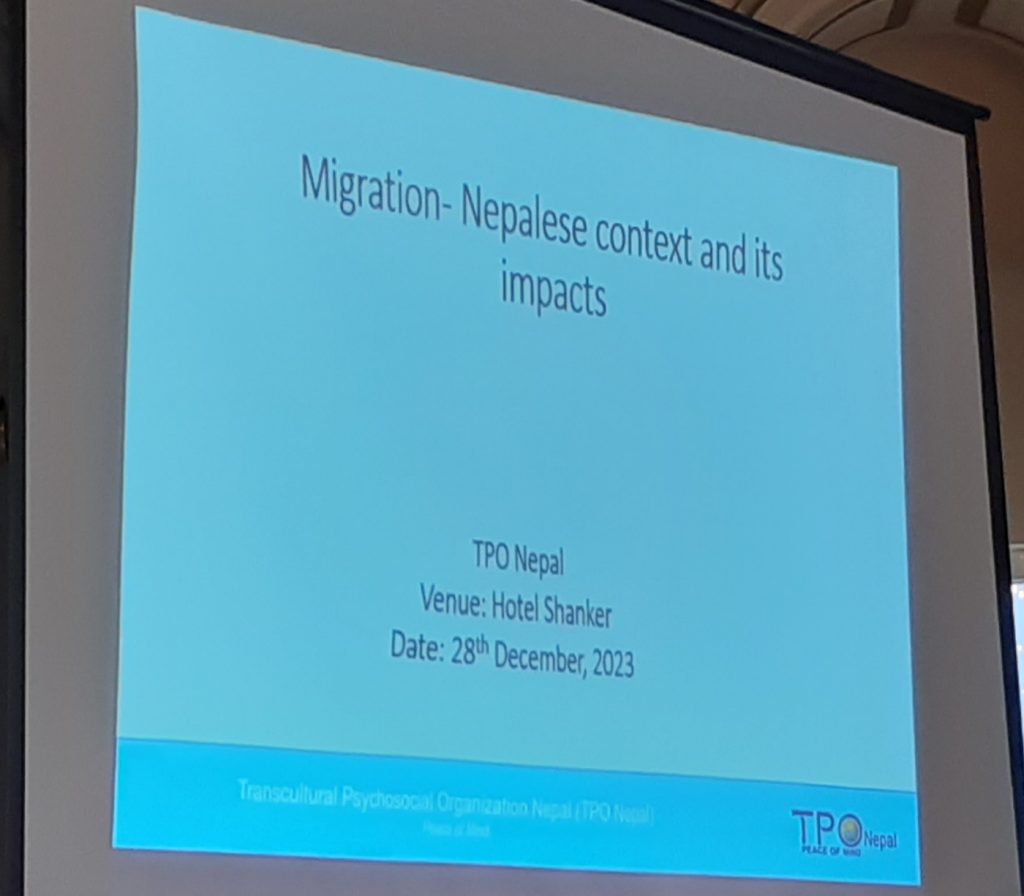
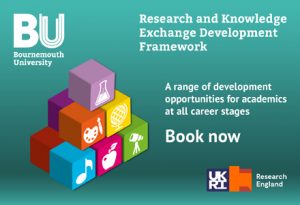 As part of the RKEDF Impact Essentials programme, booking is now open for the Impact Essentials: creating your impact development plan 2-hour in-person workshops. There are 4 dates to choose from and they will be delivered on both Talbot and Lansdowne campuses, so hopefully there will be a date and time that is convenient for everyone who would like to attend.
As part of the RKEDF Impact Essentials programme, booking is now open for the Impact Essentials: creating your impact development plan 2-hour in-person workshops. There are 4 dates to choose from and they will be delivered on both Talbot and Lansdowne campuses, so hopefully there will be a date and time that is convenient for everyone who would like to attend.

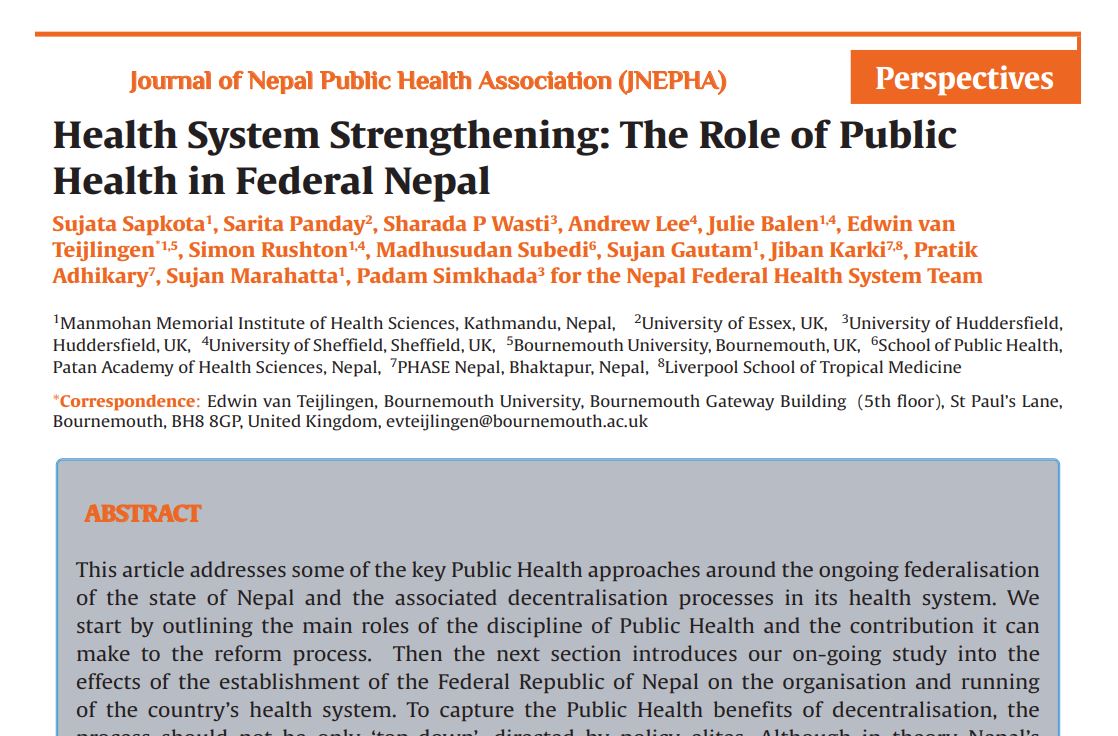
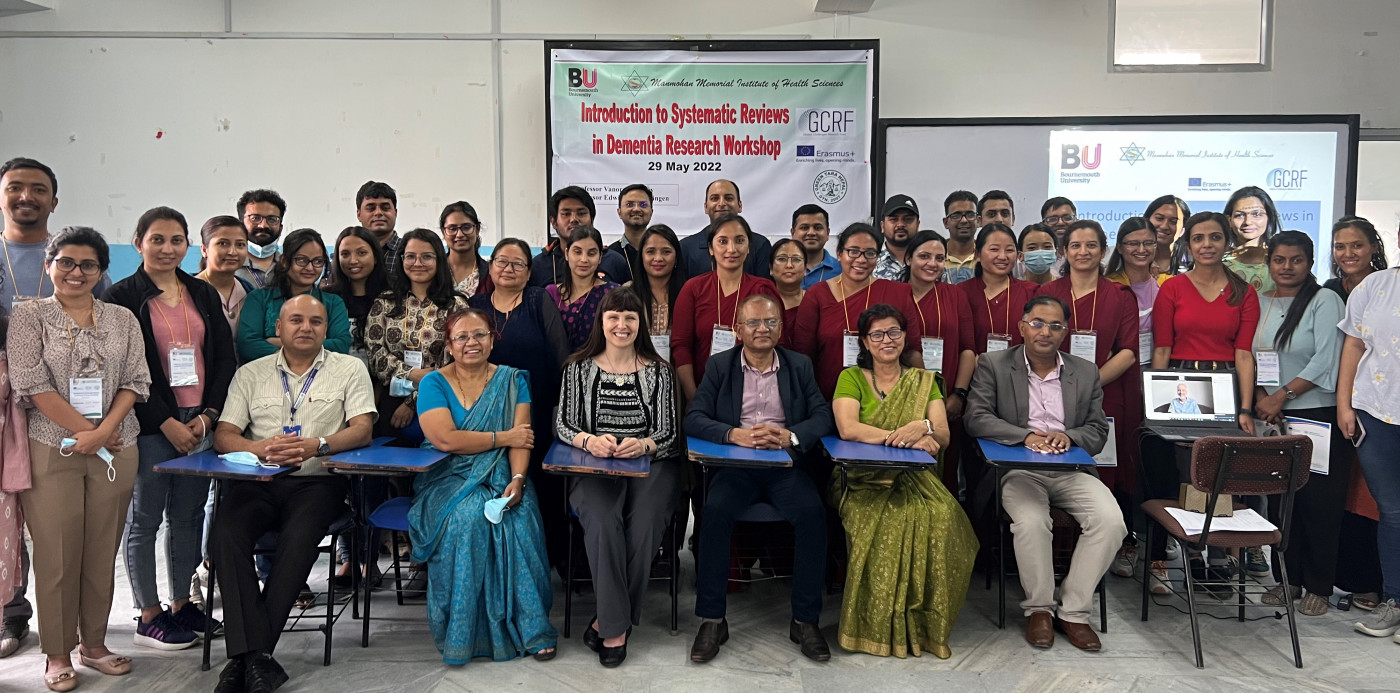

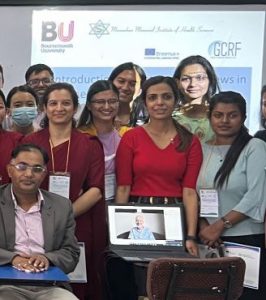

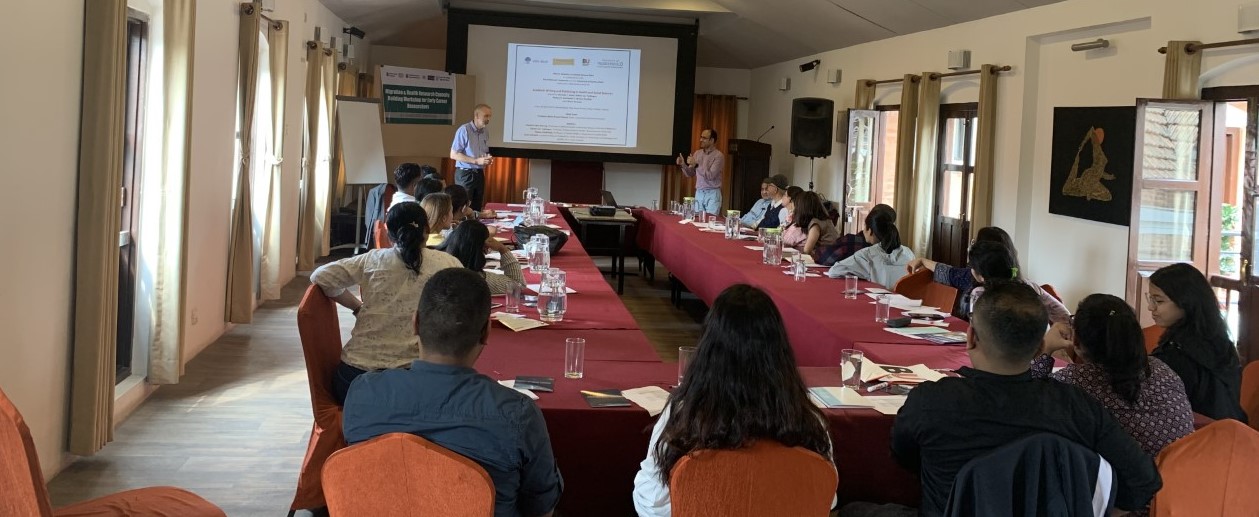
















 Dr. Ashraf cited on ‘Modest Fashion’ in The Guardian
Dr. Ashraf cited on ‘Modest Fashion’ in The Guardian NIHR-funded research launches website
NIHR-funded research launches website Academics write for newspaper in Nepal
Academics write for newspaper in Nepal New paper published on disability in women & girls
New paper published on disability in women & girls MSCA Postdoctoral Fellowships 2025 Call
MSCA Postdoctoral Fellowships 2025 Call ERC Advanced Grant 2025 Webinar
ERC Advanced Grant 2025 Webinar Horizon Europe Work Programme 2025 Published
Horizon Europe Work Programme 2025 Published Horizon Europe 2025 Work Programme pre-Published
Horizon Europe 2025 Work Programme pre-Published Update on UKRO services
Update on UKRO services European research project exploring use of ‘virtual twins’ to better manage metabolic associated fatty liver disease
European research project exploring use of ‘virtual twins’ to better manage metabolic associated fatty liver disease